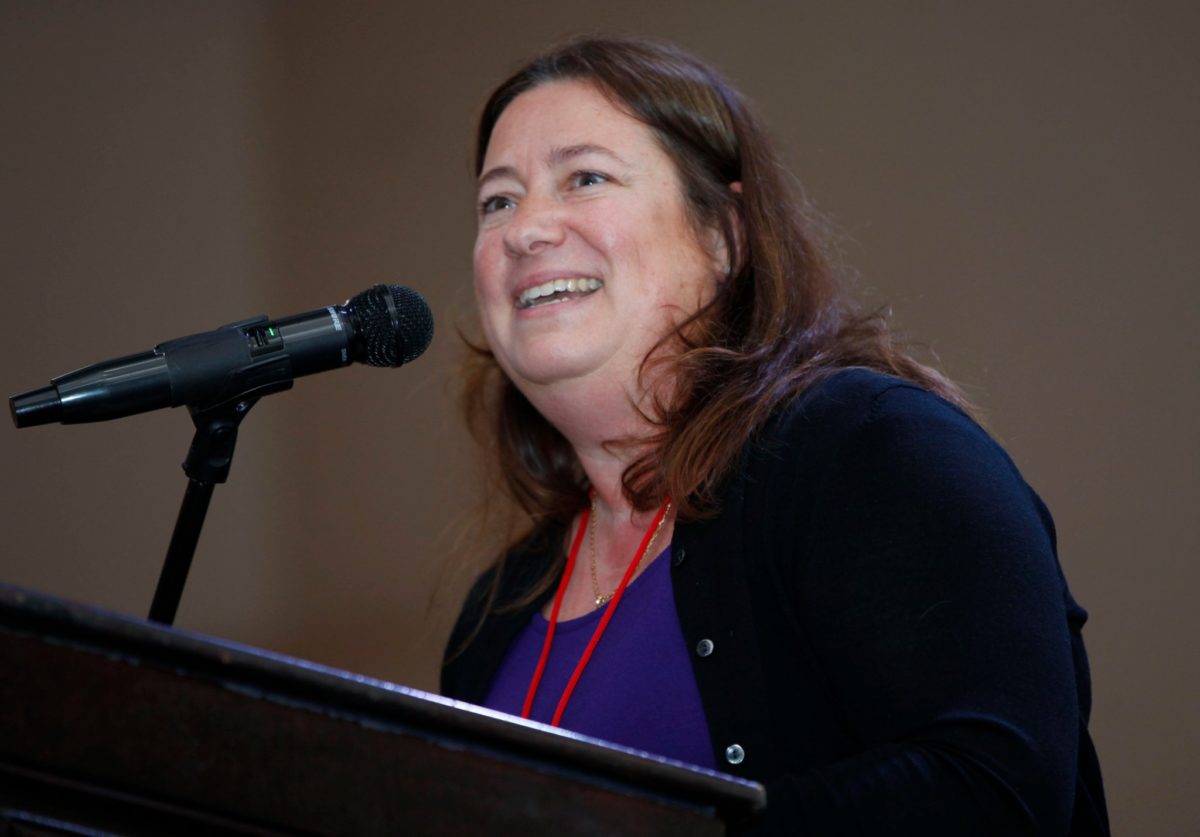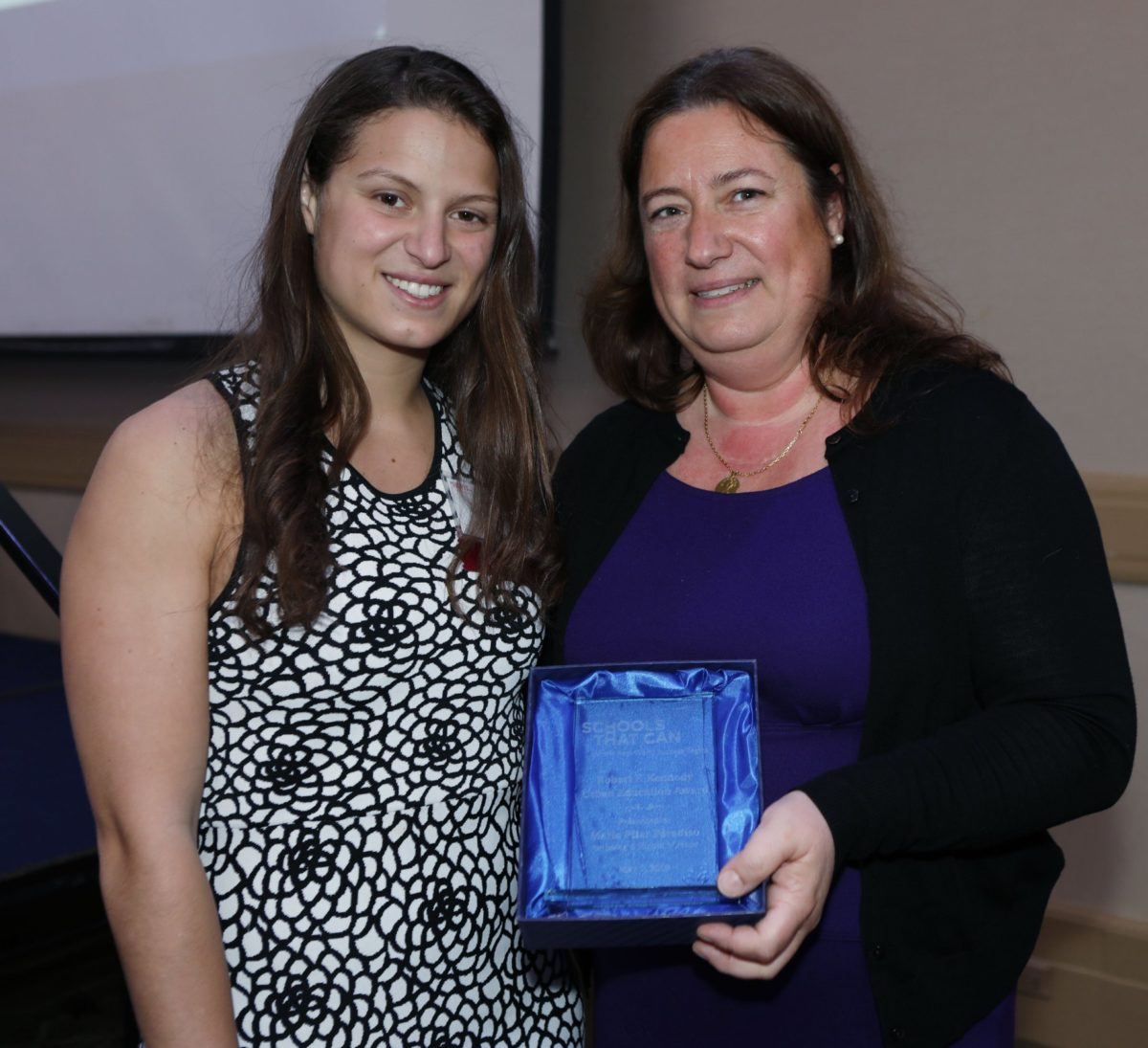2019 RFK Urban Education school leader award winner: Maria Pilar Paradiso

Maria Pilar Paradiso, Head of School at Link Community Charter in Newark, knows through personal experience how important transferable skills are, a cornerstone of real-world learning. After receiving her undergraduate degree in education, Maria tackled opportunities across social justice that have informed her current role as a school leader.
“My trajectory has always been in this big space around social justice but it’s been in areas [other than education],” Maria says, noting that before stepping into her current role, she worked with then-U.S. Senator for New Jersey, Bill Bradley, at the State Museum, and practiced law with Legal Services. “There are so many injustices and areas of inequity in society that I was operating and working with, [but I] didn’t feel like I was making a significant impact.” The impact felt short-lived, and she was eager to work toward systemic change that had a ripple effect.
After a short hiatus from work to raise her four children, Maria’s next move brought her back to her roots: Education. Her mother was a teacher, and she’d grown up surrounded by education, in addition to pursuing her undergraduate degree in it. “I was always pulled to the social justice arena, so I was really lucky that I joined Link Community School in August of 2012,” Maria explains. “I felt like when I arrived I had an opportunity to take all that experience and skill set that I had developed and put it to work in a way that [had] a tangible impact.”
“I think that’s the beauty of real-world learning,” she says, explaining that her skills throughout different periods of her career proved transferable to her current role. It isn’t just knowledge gained about a specific topic or project, she says, but how the skills and experiences transfer to other things that make real-world learning so valuable. 
That’s something she’s gotten to see manifest in her students, too. Maria explains that every year for the past ten years, students build a boat in an electives class, culminating in them taking the two-to-three person, canoe-shaped craft out on the Passaic River. “When they get into that [boat] and realize they aren’t going to sink…the idea that they built something that is worthy, that can function, and that they’re the ones that created it…” it really sinks in for them.
Similarly, students spend four days at Novartis national headquarters in New Jersey, where they shadow an executive and work on projects with students from other schools. Maria cites the night they present their projects to family members and staff members as a significant moment.
“They’re doing work that is meaningful, that is happening at the time,” she says, pointing out that the projects focus on tangible issues being solved in real-time. Through this, students develop skills and confidence they can tap into in the future.
“It’s those lightbulbs that go on,” she says, regarding students doing something concrete and enjoying the satisfaction of crossing a finish line. That’s part of the fun of her work, something she wishes people knew about her job: How much fun it is. “I get so much more out of it than I feel I give,” she explains. “Education and school leadership is so challenging day to day, but when you step back you realize it’s an extraordinary role to serve.”
Of being honored with the RFK award for school leader, Maria says she’s grateful, and hopes it will raise consciousness of the work school leaders, educators, and students do. “I’ve certainly tried through my career to work in that space of human rights and social justice, so, for it to be an award that is a collaboration with that organization [Robert F. Kennedy Human Rights], and with Robert F. Kennedy in particular who I think really did stand for, and continues to stand for, fighting oppression and injustice and inequity, it’s a wonderful acknowledgement,” she explains.
Maria loves that STC is cross-sector and collaborative, and notes how many amazing things she’s learned are happening in schools across the country as a result of STC exposing so many forward-thinking schools to each other. She believes a school that can is one that acknowledges challenges, but perseveres, and uses creative ways to launch students into learning. “We can always exceed wherever we are,” she says. “Every single teacher, student, and school is capable of excelling.”
“At the end of the day, this is just an amazing opportunity to impact the next generation and hopefully our world,” Maria says.

